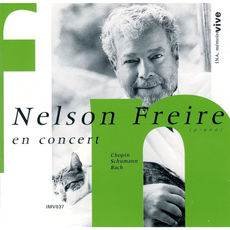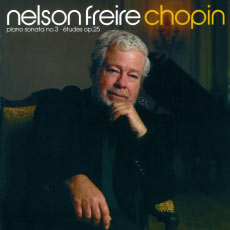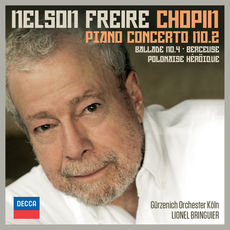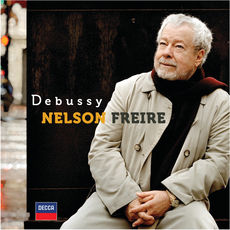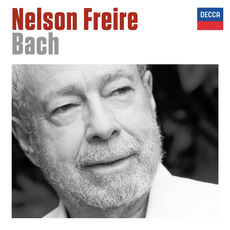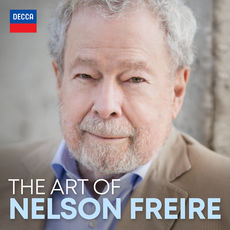Born in the state of Minas Gerais, known for its fabulous baroque churches and precious stones, Nelson Freire was a sickly, introverted child, confiding only in the piano, which he began to master at the age of three by observing his sister studying the instrument. His progress was dazzling, to the extent of winning, at the age of thirteen, the Rio de Janeiro International Piano Competition, playing Beethoven’s Emperor Concerto. It was there that he met Guiomar Novaes who was part of the panel and who immediately took him under her protective wing. “Her playing fascinated me” he said, “her sound was liquid, silvery, spontaneous.”
Soon a grant enabled him to come to Europe to work with the legendary professor Bruno Seidlhofer in Vienna, where he met Martha Argerich who came to work with the same professor, but also with Friedrich Gulda, Nikita Magaloff and Stefan Askenase. He was fifteen and she was eighteen. This friendship lasted until his death, and although he was one of the few musicians to stand up to her, his childhood friend also had an influence on him, introducing him to jazz, for example, which was to become one of his passions, adoring the voice and the work of Ella Fitzgerald as well as the infectious joy of pianist Erroll Garner.
At the end of the 1960s, Nelson Freire began recording a few tracks for Columbia, in Munich, with the conductor Rudolf Kempe. At first they were noticed and acclaimed, but then completely forgotten. They are, however, marvels with three great concertos of the repertoire: Tchaïkovski, Grieg and Schumann interpreted with incomparable skill and fire by the young twenty-five-year-old pianist, possessed by the passion to play. The rest of the programme (now republished and of course available on Qobuz) is dedicated to composers who would form the core of his repertoire: Schumann, Brahms, Chopin and Schubert. In 1972, Nelson Freire recorded the Chopin Preludes for which he received the Edison Award.
A long time out of the limelight
Despite this dazzling start to his career in 70 countries around the world, Nelson Freire continued for a long time to be, as has often been written, "the best-kept secret of the piano", known only to pianists and a few fans thanks to a few dazzling recordings for two pianos with Martha Argerich, such as Rachmaninov's Suite No. 2, Ravel's Valse or Witold Lutosławski's Variations on a Theme of Paganini. His reluctance to expose himself and to make himself known somewhat hindered a career that he wasn’t really looking for. It wasn’t until the beginning of the 21st century that a contract with Decca brought the Brazilian pianist to the forefront of the international scene with a recording of works by Frédéric Chopin that was a huge success. It was in fact in this latter part of his life that his records were most successful; they combined a blossoming, inner maturity with an incomparable sound beauty.
Among Nelson Freire's first recordings, we should not forget a dazzling version of Schumann's Concerto in A minor, conducted in a simmering manner by the great, but also overly discreet conductor Rudolf Kempe in 1970. Here everything is urgent. There's a desire to say and to communicate with an excitement that comes close to Schumannian frenzy. Definitely one to listen to!
The harmony between the Brazilian pianist and the Italian conductor Riccardo Chailly was also a huge success. In 2005 and 2006, they met again in concert for the two Brahms concertos which were released as a double album. From the initial cannon shot of the timbales in the Concerto in D minor to the joyful and unrestrained finale of the Concerto in B flat, their interpretation is sunny, between a classicism of great style and a welcome "smoothing" under the sometimes-heavy sheen of a certain vision of Brahms. With the involvement of the fabulous Leipzig Gewandhaus Orchestra, the soloist and conductor boldly compete with each other in their choice of fast tempo and their expressive desire which favours singing and melodic forms. A headlong rush that gives Brahms a powerful youthful enthusiasm, tempered by the slumber of the slow movements.
In 2014, they were reunited in concert (recorded and filmed) for Beethoven's Emperor Concerto, which Nelson Freire played, if you remember, in Rio de Janeiro the year he turned 13. The artist waited until he was 70 years old to finally deliver a recorded version of Beethoven's last concerto. The care taken by both the pianist and the conductor over every detail, without detracting from the spontaneity of their interpretation, brings a welcome enthusiasm and frivolity to a work often degraded by conventional interpretations.
Dearest Chopin
The Polish composer was especially dear to Nelson Freire’s heart. The art of singing that Chopin had inherited from both Mozart and Bellini was perfectly suited to the Brazilian pianist’s soul, to his Saudade, which expresses a mixed feeling of melancholy, nostalgia and hope.
After his inaugural album dedicated to Chopin for his new contract with Decca, Nelson Freire recorded the entire Nocturnes, published in 2010. It was the culmination of a long period since he had started to record them in 1976 before changing his mind halfway through, feeling that he was not ready and banning their publication, which his then publisher did not listen to. Feeling betrayed, the pianist then turned his back on his publisher, further distancing himself from the audience. In this new version we remain dazzled by the sound matter, by the “liquid” sound that Freire admired so much in Guiomar Novaes’ playing, and by a vision that seems to fluctuate between improvisation and daydreaming.
A few years later, the pianist delivered a splendid Concerto in F minor with the Gürzenich Orchestra Cologne conducted by French conductor Lionel Bringuier, who did a masterful job of orchestrating something that was thought to be dull and clumsy. Nelson Freire mischievously slipped Ballade No. 4 into this album, the same one he recorded as a child at the age of 12, and an intimate mix consisting of three Mazurkas, Impromptu n°3 and the Polonaise in B-flat major played with unusual breadth. The Brazilian pianist was at his peak here: lyricism, poetry in its purest form, sense of phrasing and serene strength.
It was very late on, at more than seventy years of age, that he returned to the studio to record albums dedicated to Bach and Debussy, waiting until he was fully mature to leave us with the best of his work. It was also at the beginning of this century that he recorded Beethoven's sonatas, a Schumann album (Carnaval) and a Schubert album (Impromptus).
Nelson Freire could also not ignore Franz Liszt, whose concertos he has recorded several times (the last time with Michel Plasson during the French conductor's brief stint at the head of the Dresden Philharmonic Orchestra) as well as a beautiful recital devoted to the Harmonies du soir.
Viscerally Brazilian
Aware of the scarcity of his recording legacy, Nelson Freire, in agreement with his new publisher Decca, selected several concerts preciously preserved by radio organisations and grouped them together in one album in 2014. This is a unique opportunity to discover him live at a time when he recorded very little, between 1968 and 1979. The programme includes Prokofiev's very rare Concerto No. 1 op. 10, Chopin’s Concerto in E minor, Tchaikovsky’s Concerto No. 1, Liszt’s Concerto No. 2, Schumann’s Introduction and Concert Allegro, as well as an unexpectedly classy and breathtakingly virtuosic Concerto No. 3 (Rachmaninoff), conducted by David Zinman and recorded in 1979 in Amsterdam.
Born and died in Brazil, where he always lived, Nelson Freire had his native country deeply ingrained into his heart and body. From childhood, he tried to reproduce the popular melodies that ran through his head on the huge keyboard of the Zimmerman piano imported from Germany by his mother, in particular Minha Terra ('My Earth' in Portuguese), a nursery rhyme that was, for the little boy that he still was, his "favourite score".
This love of Brazil led him to introduce a whole repertoire of works by his compatriots such as Heitor Villa-Lobos, whom he recorded several times during his life, but also Camargo Guarnieri, Henrique Oswald, Alexandre Levy, Francisco Mignone as well as the virtuoso Toccata by Claudio Santoro, which was one of his prime interests during his adolescence.
As well as jazz, Nelson Freire was also a film buff who confessed a fondness for the American “film noir” of the 1940s and 1950s, a black-and-white universe not too far away from the piano keys that he always had in front of him. The golden age of major Hollywood studios held no secrets for him, a time when elegant and cruel gangsters, thugs of all types, psychopaths, detectives and femmes fatales evolved on the screen in murky, violent and smoky urban atmospheres.
His admiration went mainly to two of the greatest film masters of that time: Alfred Hitchcock and Fritz Lang, whose films particularly fascinated our pianist, who perhaps found an echo in them of the music he was bringing to life with his hands and his imagination.
On the 31st of October 2019, the year Decca had published an album of his favourite encores on his 75th birthday, Nelson Freire fell on a pavement in Rio. Suffering multiple fractures to his arm and shoulder while trying to protect his precious hands, he was operated on the same day but would never be able to play again. He did not survive long after this personal, physical and psychological tragic event. This sensitive, solitary and exceptional musician who had become one of the greatest pianists of the late 20th and early 21st centuries passed away on the 1st of November, 2021, at the age of 77, leaving his fans all over the world in mourning.
Above all, Nelson Freire loved pianists who were full of joy, such as the aforementioned Erroll Garner, but also Arthur Rubinstein, Vladimir Horowitz, Guiomar Novaes and his friend Martha Argerich. “And you?”, the American journalist asked at the end of their interview. Nelson Freire lit a cigarette in response, looking up shyly and began to smile.


